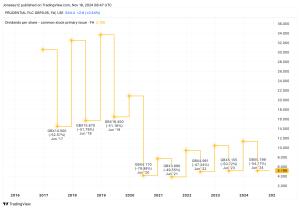The IAG (LSE:IAG) share price is below where it should be. That’s what analysts are saying with their £2.30 price target, which reflects a 41.7% premium to the current share price.
This is one of the biggest valuation gaps I’ve come across on the FTSE 100 in recent months. And while analysts can be wrong, it’s important to remember this is the consensus opinion of all 15 analysts covering the stock.
The stock currently has 11 Buy or Outperform ratings and just four Holds. No analysts have rated this airline operator as a Sell.
Don’t take their word for it
As I mentioned, analysts from major financial institutions can be way off in their predictions. And while I do put a good amount of faith in the consensus, it’s always worthwhile following up by undertaking your own analysis.
So are IAG shares undervalued? Well, starting with the similar metrics, IAG trades with a price-to-earnings (P/E) ratio of just 4.35 times. I know that’s enough to catch the eye of most UK investors, but let’s dive further.
It’s worth noting that there’s little point investing in company with a low P/E if it doesn’t pay a dividend or if its earnings are going backwards. Thankfully, IAG’s earnings are growing.
The P/E ratio is set to fall to 3.93 times in 2025 and 3.73 times in 2026. Moreover, we could see the return of a meaningful dividend in the medium term, thus improving the overall returns of the stock.
The P/E ratio’s a little basic. It doesn’t take into account debt. While several of IAG’s peers are debt free, IAG has €7.4bn of debt, and this needs to be taken into account.
IAG’s EV-to-EBITDA ratio — which takes debt into account — is 3.11 times for 2024, 2.82 times for 2025, and 2.58 times for 2026. This puts it pretty much in line with debt-free peer easyJet, and much cheaper than other peers.
One word of caution. The aviation industry’s been hit by multiple shocks in recent years — the pandemic, Russia-related fuel price spikes — and I believe this is still weighing on the share price.
Geopolitics is always a factor when fuel’s involved. As fuel represents 25% of IAG’s costs, rising prices would represent a risk to the business.
Considerations for the industry
One reason I like easyJet at the moment is because it offers total shelter from Boeing.
For those readers that haven’t been following, Boeing has had some high-profile safety incidents in 2024, compounding concerns about airworthiness following the MCAS failures that led to two deadly crashes.
IAG does have a handful of Boeing 777-200 and 777-300, as well as the 787-8, however the majority of the fleet are Airbus aircraft. This puts both IAG and easyJet in my good books.
While easyJet also currently looks like a good option, my preference remains for IAG. While easyJet’s market’s more focused on low-cost and tourism, IAG’s more diverse in its operations.
IAG, the parent company of British Airways, Iberia, Aer Lingus, and Vueling, operates across multiple segments, including both premium and budget travel.
This diversity represents a more robust business model that can weather market fluctuations more effectively. I’m considering the stock and feel that other investors should do so too.
This post was originally published on Motley Fool







